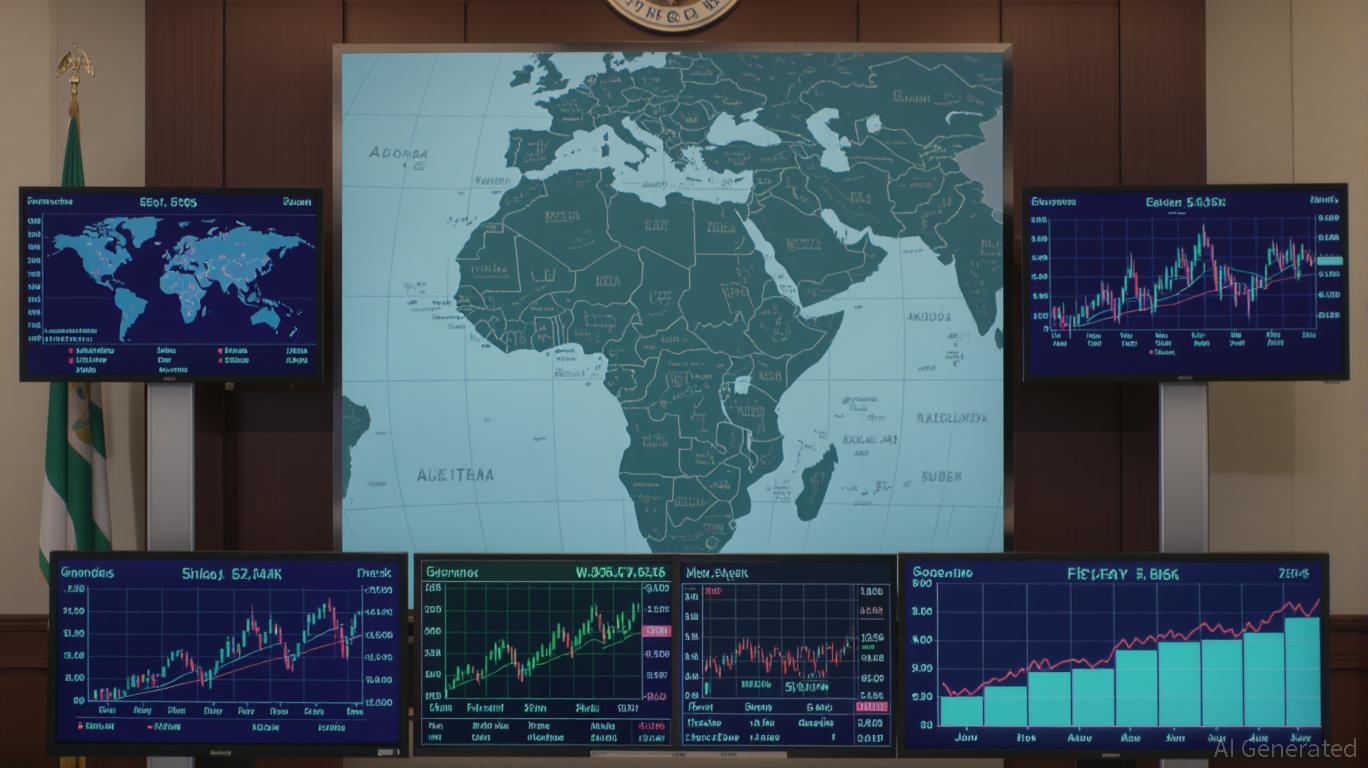The U.S. visa policy shifts in 2025 have become a litmus test for geopolitical risk, offering investors a window into the fragility of emerging markets. By imposing stringent visa restrictions on Niger and Nigeria—two nations grappling with political and economic instability—the U.S. has inadvertently highlighted the broader risks facing capital flows into such regions. These policies, framed as “reciprocity measures” or national security imperatives, are not isolated incidents but part of a strategic recalibration that signals caution for investors in emerging markets.

The U.S. Department of State’s July 2025 announcement to limit Nigerian non-immigrant visas to single-entry permits with three-month validity marks a stark departure from the five-year multiple-entry system. This shift, coupled with a 10% tariff on Nigerian exports and a refusal to accept Venezuelan deportees, underscores a growing diplomatic friction. For Niger, the suspension of routine visa services in Niamey and heightened scrutiny of applicants further illustrate the U.S. prioritizing security over economic cooperation. These moves are not merely bureaucratic hurdles; they are symptomatic of a larger trend where geopolitical tensions translate into tangible barriers for trade and investment.
The Investor Sentiment Equation
When the U.S. restricts mobility between its borders and emerging markets, it sends a clear signal to global investors: risk is rising. The Nigerian government estimates that its non-oil exports to the U.S. surged to N5.52tn in 2024, a 107% increase from 2023. However, the new visa and tariff policies threaten to reverse this momentum. Small and medium enterprises (SMEs), which rely on the African Growth and Opportunity Act (AGOA) exemptions, face heightened uncertainty. For investors, this means valuing Nigerian equities will require a premium for political risk—just as they do for other volatile markets.
The ripple effects extend beyond Nigeria. The U.S. has also suspended visa processing in Niger, a key former ally in counterinsurgency efforts in the Sahel. This move, paired with the withdrawal of U.S. military personnel in 2024, signals a strategic disengagement that could deter foreign direct investment (FDI) in infrastructure, agriculture, and tech sectors. Investors in emerging markets must now weigh not only macroeconomic metrics but also the diplomatic leverage of host nations.
The NGX Composite Index, which had outperformed its peers in 2023, has since stagnated as these policies took effect. Similarly, Niger’s nascent equity market, though less liquid, faces headwinds as U.S. capital retreats. The data underscores a correlation: when U.S. policy signals distrust in a country’s governance, equity valuations adjust downward.
Strategic Implications for InvestorsDiversify Geopolitical Exposure: Investors should avoid overconcentration in countries where U.S. policy shifts could trigger sudden capital outflows. For example, Nigeria’s AGOA-dependent SMEs may struggle to adapt to tariffs, whereas Indonesian or Vietnamese firms—less entangled in U.S. diplomatic tensions—could offer safer alternatives. Hedge Against Policy Risk: Emerging market bonds and equities should be hedged with instruments like political risk insurance or currency derivatives. For instance, the Nigerian naira has depreciated by 12% against the U.S. dollar since July 2025, amplifying exposure for unhedged investors. Prioritize Resilient Sectors: Sectors less reliant on U.S. demand—such as African fintechs or regional infrastructure—may prove more resilient. Nigerian tech firms like Flutterwave or Interswitch, which process cross-border payments, could benefit from regional integration trends, mitigating U.S.-centric risks.
South Africa and Egypt, which maintain more stable U.S. relations, have attracted 3.2x and 2.1x more FDI than Nigeria in 2025. This disparity highlights the cost of geopolitical friction: Nigeria’s energy and mining sectors, though resource-rich, remain undercapitalized due to policy uncertainty.
Conclusion
The U.S. visa policy shifts are more than a diplomatic spat—they are a bellwether for investor caution in fragile states. For emerging markets, the lesson is clear: geopolitical alignment with major powers can be as critical to economic stability as sound fiscal policy. Investors must now navigate a landscape where diplomacy shapes markets as much as data. Those who adapt—by diversifying portfolios, hedging risks, and focusing on resilient sectors—will weather the storm of geopolitical volatility.
In the end, the visa is not just a piece of paper; it is a signal. And in the world of investment, signals like these can be the difference between opportunity and obsolescence.
